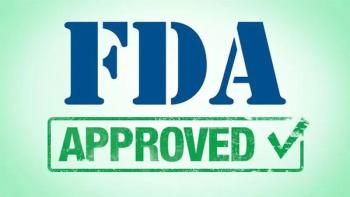
American Cancer Society Raises Age to 45 for First Mammogram
The American Cancer Society (ACS) has revised its breast cancer screening guidelines, recommending that women at an average risk of breast cancer receive a mammography annually starting at age 45-5 years later than previous recommendations formulated in 2003.
Kevin Oeffinger, MD
The American Cancer Society (ACS) has revised its breast cancer screening guidelines, recommending that women at an average risk of breast cancer receive a mammography annually starting at age 45—5 years later than previous recommendations formulated in 2003. At age 55, the updated guidelines recommend screening for breast cancer every other year.
In the new guideline, screening for women age 40 to 44 is listed as a personal choice rather than a strong recommendation.
For women older than 55 years, annual screening is also listed as a personal choice, in favor of biennial exams. Additionally, the new guideline did not place a maximum age on screening for healthy individuals, as long as life expectancy was greater than 10 years.
“The option to screen every two years for women beginning at age 55 is based on the fact that postmenopausal breast cancers tend to develop more slowly,” Kevin Oeffinger, MD, chair of the breast cancer guideline panel and a family physician at Memorial Sloan Kettering Cancer Center, said in a statement. “Because of that, women may choose either to continue annual screening or move to screening every two years beginning at age 55. Breast cancers before menopause tend to grow more rapidly, making screening every year important.”
The guideline was compiled following a systematic review of published literature by a team of 4 clinicians, 2 biostatisticians, 2 epidemiologists, 2 patient representatives, and an economist. After this stage, 26 organizations and 22 expert advisors were allowed to participate in an external review.
In addition to the changes in age for screening mammography, the new guideline recommends against clinical breast examination for breast cancer screening among average risk women of any age. Overall, there was a paucity of data for clinical exams, although, available information suggested an increase in false-positives with the examinations.
“These recommendations are made with the intent of maximizing reductions in breast cancer mortality and years of life saved while being attentive to the need to minimize harms associated with screening,” said Oeffinger. “The benefits, burdens, and judgment about that balance differ depending on a woman’s age, health, values, and preferences. These recommendations recognize and reflect those differences.”
Although the updated ACS guideline represents a delayed start for screening, the guideline still recommends the use of mammography earlier than what has been put forward by the US Preventive Services Task Force (USPSTF). In the USPSTF guideline, screening is recommended every 2 years for those between the ages of 50 and 74 and is recommended against for those aged 40 to 49.
In addition to mammography, the USPSTF advises against teaching women how to perform breast cancer self-examination. Given an absence of evidence on the efficacy of self-exams, the ACS was unable to formulate a recommendation on this topic. However, the document noted that substantial portions of breast cancers are self-detected.
“Though the evidence shows that there are some benefits from mammography screening starting at age 40, those benefits more clearly outweigh the harms from age 45 onward," Elizabeth "Terry" Fontham, MPH, DrPH, founding Dean of the School of Public Health at LSU Health Sciences Center in New Orleans and chair of the ACS Guideline Development Group, said in a statement.
"Still, some women will choose to begin screening between age 40 and 44, both because they are concerned about their risk of breast cancer, either in general or because they are at higher risk, and are less concerned about the chances of experiencing a false positive findings. Those women should have the opportunity to start screening at 40 if they choose,” Fontham added.
The only changes made to the ACS guideline were for those at "average" risk, a point that was reinforced by
Attai, MD, a breast surgeon and assistant clinical professor of surgery at David Geffen School of Medicine, University of California, Los Angeles, tweeted that healthcare professionals need to do risk assessment of patients and note lifestyle factors that can decrease risk.
The nonprofit organization
to contend that breast cancer screenings should be available to every woman at any age.
While the new ACS recommendations are not binding on healthcare providers or payers, Judy Salerno, MD, president and CEO of Susan G. Komen, said in a
For women at high risk for developing breast cancer, an MRI and mammogram is still recommended annually by the ACS. However, a main area of contention on this point is that many women are not unaware of their level of risk, according to the organization Bright Pink, which is focused on prevention and early detection of breast and ovarian cancer in young women.
In their guidelines, Bright Pink continues to recommend annual screening for women at average risk starting at age 40. Additionally, the group continues to support annual clinical breast exams. The group also emphasized the importance of making an informed decision and provided a tool for assessing risk (
The ACS guidelines don’t take into account the advancements in 3D mammography, according to
Newsletter
Knowledge is power. Don’t miss the most recent breakthroughs in cancer care.




















































































